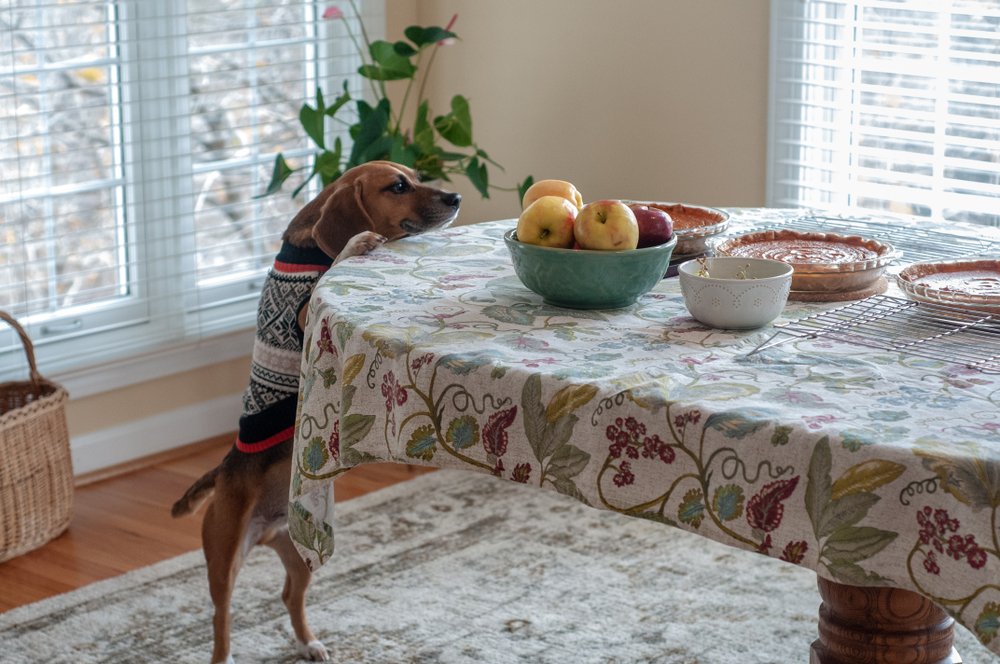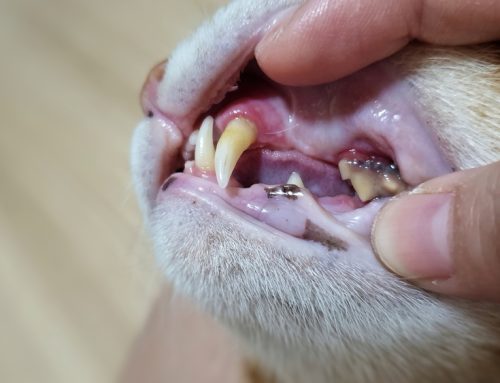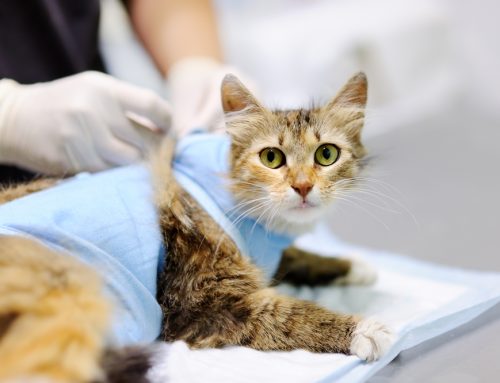Is your pet’s pancreas poised for a painful problem? Pancreatitis is a dangerous, potentially deadly inflammatory response that affects cats and dogs. Unfortunately, many pet owners are unaware of this condition, and may dismiss the warning signs.
During the holiday season, El Paso Animal Hospital sees an increase in pancreatitis—especially in dogs—because indulgent owners unknowingly spoil their dogs with rich holiday foods. Are you guilty of giving a little too much turkey skin, buttery potatoes, or rich leftovers during the holiday?
To shed light on this commonly diagnosed, but poorly publicized, condition, we’ve compiled a basic guide to pancreatitis in pets.
What is the function of the pancreas in pets?
The pet pancreas is similar to ours, and is a long, flat organ tucked under the stomach and alongside the small intestine. A healthy pancreas is an unassuming but hard worker, making and secreting essential body products, namely:
- Digestive enzymes — The pancreas produces five enzymes responsible for protein, fat, and carbohydrate digestion in the small intestine.
- Blood glucose regulators — Insulin and glucagon are pancreatic hormones that control metabolism and glucose use in the body.
What happens during pancreatitis in pets?
Pancreatitis is inflammation of the pancreas that can occur suddenly and violently (i.e., acute), or progress slowly over time (i.e., chronic). In a healthy pancreas, digestive enzymes are inert until they are activated in the small intestine—however, in the inflamed pancreas, the enzymes are activated early, and begin breaking down the fats and proteins that constitute the organ. This extremely painful condition, which is known as autodigestion, releases toxic waste products into the pet’s bloodstream. As the toxins circulate, they spark further inflammation throughout the body, including the kidney, liver, and central nervous system.
What causes pancreatitis in pets?
The internal changes that correspond with pancreatitis are well understood, but the actual cause can frustrate many pet owners and veterinarians. Most pancreatitis cases in dogs and cats are idiopathic (i.e., have no known cause), although several precursors and risk factors have been identified, including:
- Dietary indiscretion — Fat-laden meals or foods high in salt, sugar, or seasonings are a common pancreatitis cause in dogs—especially during the holidays, when pets are more likely treated with rich foods, or to get into the trash. Interestingly, feline pancreatitis has no known dietary connection.
- Breed — Miniature schnauzers are disproportionately affected by pancreatitis, because of their altered metabolism and high triglycerides. Other susceptible breeds include dachshunds, cocker spaniels, poodles, and Yorkshire terriers.
- Concurrent conditions — Pets with endocrine disorders (e.g., thyroid disease, diabetes) or inflammatory diseases (e.g., inflammatory bowel disease, liver disease) commonly suffer from pancreatitis.
Other potential risk factors include obesity, chronic medication use, trauma, and infectious disease.
What does pancreatitis look like in pets?
Dogs and cats with acute pancreatitis are visibly ill, and may experience signs that include:
- Vomiting
- Loss of appetite
- Fever
- Lethargy
- Diarrhea
- Painful abdomen—pets may stand with a hunched back, or stretch repeatedly
Pets with chronic pancreatitis may not appear ill, have only periodic signs, or show vague symptoms, such as gradual weight loss, occasional vomiting, and diarrhea. Whether your pet is experiencing acute or chronic signs, they need veterinary treatment—contact your El Paso Animal Hospital veterinarian as soon as possible.
How is pancreatitis managed in pets?
Once our veterinarian has ruled out other causes for your pet’s signs and reached a pancreatitis diagnosis, treatment is individually based, depending on severity. Pets with mild chronic signs may be discharged for at-home treatment, while moderate to severe acute cases usually require hospitalization for intensive care.
Prompt treatment is necessary to protect pets from dehydration, multiple organ damage, or permanent pancreatic scarring. Once hospitalized, pancreatitis treatment includes:
- Correcting dehydration and restoring electrolyte balance
- Controlling clinical signs (e.g., anti-nausea medication to treat vomiting)
- Managing pain
- Providing nutritional support
Most pets recover well, so long as strict after-care instructions are followed. Dogs are commonly placed on a lifelong low-fat diet, to minimize recurrence. Unfortunately, aggressive treatment may not be enough to save severely affected pets.
Preventing pancreatitis in pets

Pancreatitis is not necessarily a preventable condition, because of its unknown cause, but you can take a few proactive measures to potentially reduce your pet’s risk, including:
- Treat your pet to safe and healthy holiday snacks — We know resisting those begging eyes is impossible, so set aside healthy ingredients for your pet during meal preparation. Boneless, skinless white meat turkey pieces, plain sweet potato, raw or cooked green beans and carrots, pure pumpkin, sliced apple, corn, or fresh berries, are all healthy options.
- Skip these popular—and dangerous—holiday foods — Never give your pet turkey skin, fat, or trimmings, and avoid gravy, casseroles, or side dishes full of butter, cream, and salt.
- Keep your pet lean — Feed your pet a high quality diet twice-daily, and regularly exercise them, to maintain a healthy body weight.
- Stay up-to-date with preventive care — Annual or semi-annual care at El Paso Animal Hospital can ensure your pet stays healthy, and disease is detected early.
- Know your pet — No one knows your pet better than you. If their behavior is causing any concern, schedule an appointment with us.
Avoiding pancreatitis may not be entirely possible, but familiarizing yourself with this dangerous disease, and keeping your pet away from problem foods can improve your pet’s health this holiday season, and beyond. For additional questions about pancreatitis, contact El Paso Animal Hospital.







Leave A Comment